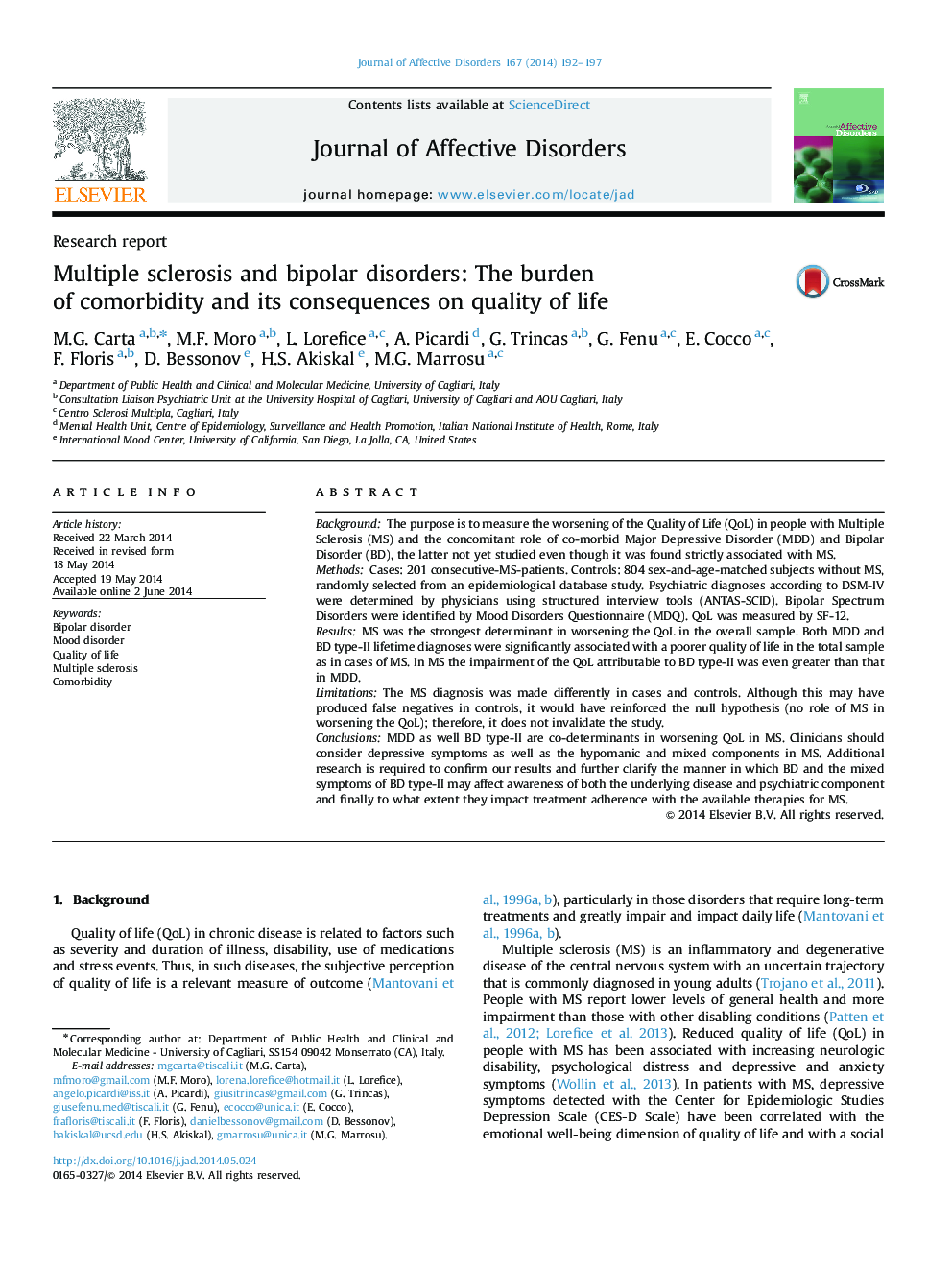| Article ID | Journal | Published Year | Pages | File Type |
|---|---|---|---|---|
| 6232691 | Journal of Affective Disorders | 2014 | 6 Pages |
BackgroundThe purpose is to measure the worsening of the Quality of Life (QoL) in people with Multiple Sclerosis (MS) and the concomitant role of co-morbid Major Depressive Disorder (MDD) and Bipolar Disorder (BD), the latter not yet studied even though it was found strictly associated with MS.MethodsCases: 201 consecutive-MS-patients. Controls: 804 sex-and-age-matched subjects without MS, randomly selected from an epidemiological database study. Psychiatric diagnoses according to DSM-IV were determined by physicians using structured interview tools (ANTAS-SCID). Bipolar Spectrum Disorders were identified by Mood Disorders Questionnaire (MDQ). QoL was measured by SF-12.ResultsMS was the strongest determinant in worsening the QoL in the overall sample. Both MDD and BD type-II lifetime diagnoses were significantly associated with a poorer quality of life in the total sample as in cases of MS. In MS the impairment of the QoL attributable to BD type-II was even greater than that in MDD.LimitationsThe MS diagnosis was made differently in cases and controls. Although this may have produced false negatives in controls, it would have reinforced the null hypothesis (no role of MS in worsening the QoL); therefore, it does not invalidate the study.ConclusionsMDD as well BD type-II are co-determinants in worsening QoL in MS. Clinicians should consider depressive symptoms as well as the hypomanic and mixed components in MS. Additional research is required to confirm our results and further clarify the manner in which BD and the mixed symptoms of BD type-II may affect awareness of both the underlying disease and psychiatric component and finally to what extent they impact treatment adherence with the available therapies for MS.
